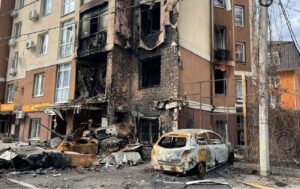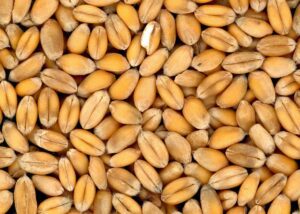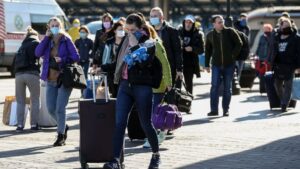
Imports of passenger cars to Ukraine in January-June of this year amounted to 304,083 thousand units. in the amount of almost $1.7 billion, Ukravtoprom reports with reference to the State Statistics Service.
According to a message in the Telegram channel on Friday, only 18.323 thousand cars (or 6%) of this number were new, while the remaining 285.76 thousand (94%) were used.
In turn, a year ago, Ukravtoprom published similar statistics on its website, according to which, in January-June 2021, 280.3 thousand passenger cars worth more than $2.1 billion were imported to Ukraine, including the share of new cars was 20 %.
Thus, if in the first half of 2022 the import of cars in physical terms increased by 8.5%, then in foreign currency it decreased by 19%, and the share of new cars decreased by 14 p.p.
According to Ukravtoprom, in the first half of this year, purchases of new cars cost importers $363.3 million, and the customs value of used cars exceeded $1.3 billion (a year earlier, approximately the same amount – $1.05 billion each – IF).
The main suppliers of new cars to Ukraine in January-June 2022 were China (6.61 thousand units), Japan (3.382 thousand), and Romania (1.476 thousand), and used ones were most often bought in Germany (118.758 thousand units). ), France (31.206 thousand) and Poland (20.716 thousand).
In the first half of last year, Japan was the leader in deliveries of new cars (11.2 thousand), followed by China (11 thousand) and Romania (5.8 thousand). Used cars were most often imported from Germany (46 thousand), the USA (40 thousand) and Poland (25 thousand).

The Kyiv Regional Council allocated UAH 145 million from the reserve fund of the regional budget to overcome the consequences of the war and restore the region, the head of the Kyiv Regional Military Administration, Oleksiy Kuleba, said in a video message on Friday.
“These funds will be used for road maintenance, as well as relevant infrastructure, territorial defense, liquidation of the consequences of hostilities and preparation for the heating season,” Kuleba emphasized.
According to him, out of 145 million hryvnias, 100 million hryvnias have been allocated for the maintenance and development of highways, as well as the corresponding infrastructure.
Kuleba noted that for preparation for the heating season, Borodyansk will receive UAH 6.7 million, Vasylkivsk will receive about UAH 19.7 million, Dymersk will receive about UAH 12.9 million.
In addition, for the liquidation of the consequences of hostilities and the restoration of the infrastructure of settlements, UAH 0.6 million was allocated to the Borodyansk community, over UAH 2.3 million to the Dymersk community, and UAH 0.255 million to the Poliska territorial community
Another 2 million hryvnias will also be directed to the work of territorial defense and other measures related to the military aggression of the Russian Federation.

Since the beginning of the 2022/2023 marketing year (MR, July-June), Ukraine has exported 2.98 million tons of grain crops, including 1.94 million tons of corn (65% of the total supply), 783 thousand tons of wheat ( 26%) and 257 thousand tons of barley (8.8%).
As reported on the website of the Ministry of Agrarian Policy and Food on Friday, the pace of grain exports since the beginning of the current financial year was 2.06 times lower than the indicators of the same period last year (from July 1 to August 19, 2021, 6.12 million tons were exported) .
At the same time, according to the agency, for the period of August 11-19, 770 thousand tons of grain crops were delivered to foreign markets (96.2 thousand tons per day), while in the previous period of August 5-11 – 340 thousand tons of grain crops ( 48.6 thousand tons per day), for July 27-August 5 – 640 thousand tons of grain crops (71.1 thousand tons per day), and for July 15-27 – 627 thousand tons of grain crops (52.25 thousand tons per day). Thus, the average daily rate of export for the reporting period doubled compared to the previous period and reached the maximum value since the beginning of the MR.
For comparison, in eight days (August 11-19), the country supplied the volume of grain crops to foreign markets, similar to the volume of 28 days in April (April 1-28, 2022), when their export amounted to 763,000 tons. This is due to the effect of the Istanbul grain agreements, which opened the export of agricultural crops from three Ukrainian seaports – only on August 1-15, they sent 21 dry cargo ships with 563 thousand tons of agricultural products to foreign markets.
In general, from the beginning of the 2022/2023 FY and until August 19, 2022, Ukraine exported 783 thousand tons of wheat (3.7 times less compared to the same date of the 2021/2022 FY), 257 thousand tons of barley (eight times less) and 7.4 thousand tons of flour (2.55 times less). However, the rate of corn export exceeded last year’s volumes – 1.94 million tons of corn were exported, which is 67.8% more than the indicators of the 2021/2022 financial year.
As reported, in 2021/2022, Ukraine exported 48.51 million tons of grain and leguminous crops, which is 8.4% higher than the indicators of the previous MR, despite the full-scale invasion of the Russian Federation and difficulties in exporting agricultural products due to the blockade of Ukrainian seaports. 18.74 million tons of wheat (12.6% more than the indicators of 2020/2021 MR), 23.54 million tons of corn (+1.9%), 5.75 million tons of barley (+35.9%) were delivered to foreign markets ), 70.9 thousand tons of flour (-44.1%).
In 2020/2021, the country exported 44.72 million tons of cereals and legumes: 16.64 million tons of wheat, 23.08 million tons of corn, 4.23 million tons of barley, 126.9 thousand tons of flour and 18.4 thousand tons of flour tons of rye.
In 2019/2020, the Republic of Ukraine exported 56.72 million tons of grain and leguminous crops.

Ukraine imported 760,000 tons of oil products in July, First Deputy Minister of Economy Denis Kudin said.
“Ukraine imported approximately 760,000 tons of gasoline, diesel and autogas. This can be compared with imports of the pre-war period,” he said during a meeting of the Verkhovna Rada’s finance committee.
As reported with reference to Economy Minister Yuliya Svyridenko, in March 2022 Ukraine imported 60 thousand tons of oil products, in April – 191 thousand tons, in May – 380 thousand tons.
According to her, in June it was planned to increase the import of oil products by 1.6 times compared to May – up to 600 thousand tons. In particular, 2/3 of them should be diesel fuel, 1/3 – gasoline and liquefied gas.

The Government of Ukraine will send a letter to all tax authorities and governments of the EU countries with a request to apply the “covid precedent”, when many people were forced to leave their countries of tax residence due to the cancellation of flights, and the “tax rule” was not applied to them. residency 180 days”.
This decision was made by the Economic Headquarters under the Ministry of Economy at a meeting on Thursday, its member Mikhail Kukhar said on Facebook.
According to him, the letter will be signed by First Deputy Prime Minister – Economy Minister Yulia Sviridenko, who heads the Economic Staff and approved such a proposal.
Kukhar added that changes are also being prepared to the relevant instructions of the National Bank and the State Tax Service to allow Ukrainian individual entrepreneurs to open accounts in foreign banks.
As previously reported, the European Business Association called on the government to resolve the issue of tax residence of Ukrainian citizens abroad, since staying outside the country for more than 183 days, they can be recognized as residents of the host country and there will be a risk of double taxation.
According to the UN, at present, most of the Ukrainian refugees to Europe received the status of temporary protection in Poland – 1 million 274.1 thousand, Germany – 670 thousand, the Czech Republic – 413 thousand, Italy – 150.3 thousand, Spain – 133.8 thousand, Bulgaria – 129.4 thousand, France – 96.5 thousand, Slovakia – 86.8 thousand and Austria – 78.2 thousand.
Most of them left Ukraine at the end of February and March.